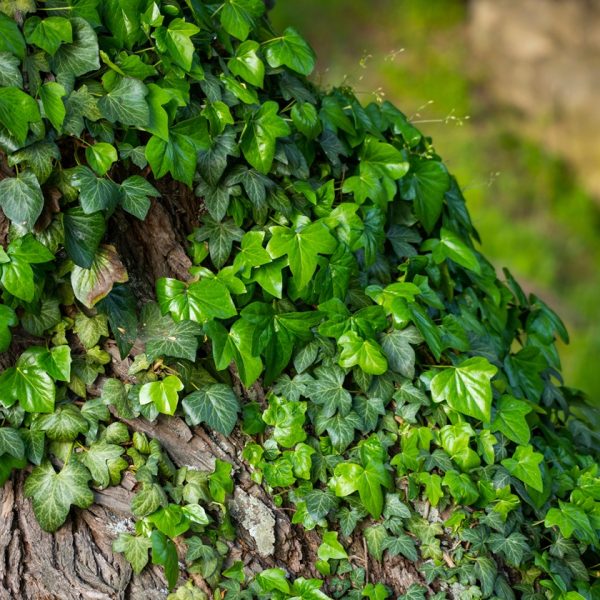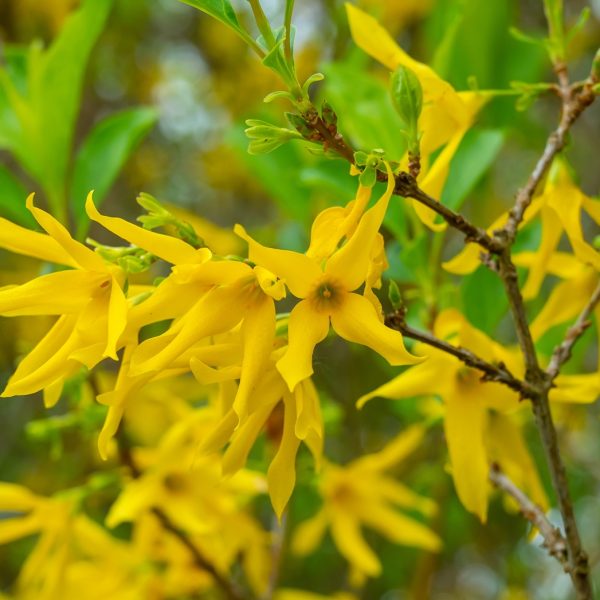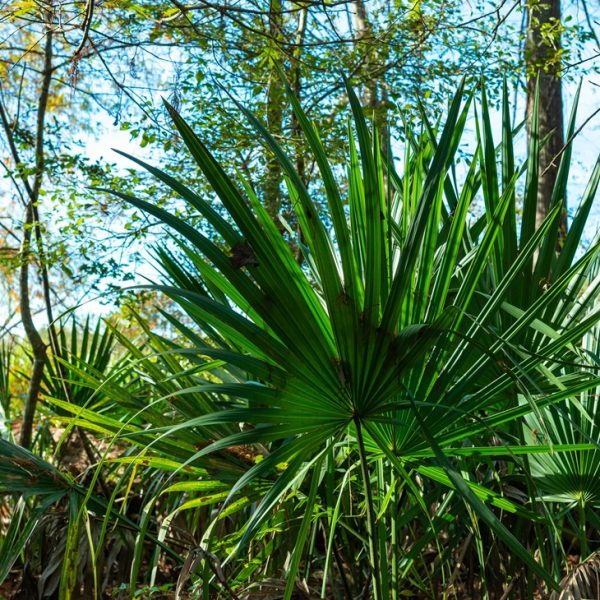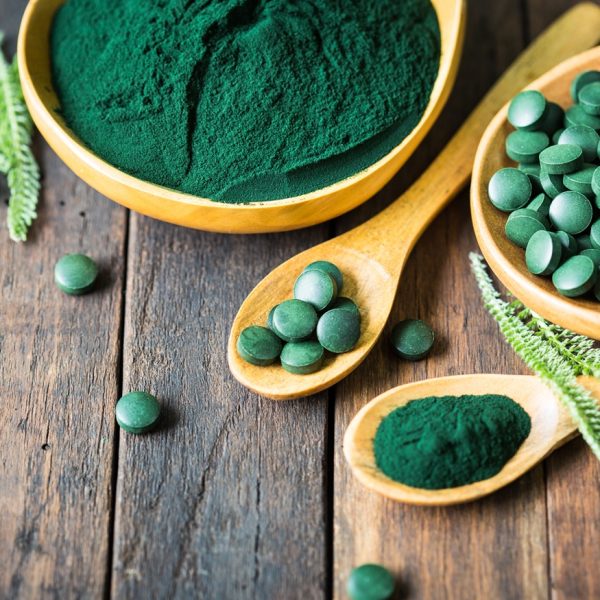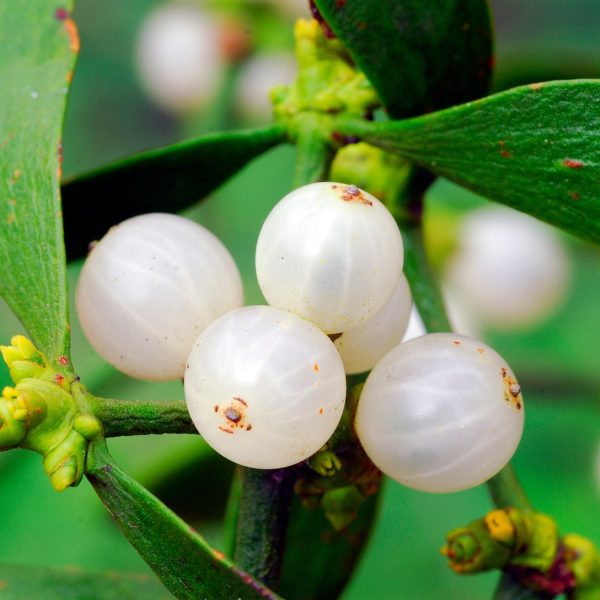Polycystic ovarian syndrome (PCOS) can involve excessive androgen production, adrenal hyperplasia, insulin resistance, weight gain, anovulation, hirsutism and acne.
Understanding PCOS

Polycystic ovary syndrome (PCOS) is one of the most common hormonal disorders in individuals assigned female at birth. It is commonly associated with infertility, as up to 72% of those with PCOS experience infertility compared to 16% of women without PCOS (1). PCOS affects between 6–21% of women of childbearing age, however less than 50% of women are properly diagnosed, therefore many individuals remain unaware of the cause of their symptoms (1,2). There are, however, tried and tested treatments to manage symptoms naturally, as well as potentially reverse the imbalance by addressing the root cause.
The three main features of polycystic ovarian syndrome (PCOS) are immature ovarian follicles resembling cysts on the ovaries, an excess of male hormones and absent or irregular periods. Although it has been a relatively under-diagnosed condition for a long time, awareness and understanding of this disorder is increasing. This is important because PCOS is associated with an increased risk for developing type 2 diabetes, mood disorders, fatty liver disease, high blood pressure, high cholesterol, high blood sugar, heart disease and metabolic syndrome amongst other issues (3,4).
Fundamentally, PCOS is as a result of a hormonal imbalance. The endocrine (hormone) system functions by a complex mechanism of hormonal messengers, and further research is required to ascertain the impact of these hormonal imbalances in individual people. PCOS is often characterised by insulin resistance, which is a key hormone responsible for the control and maintenance of optimum blood glucose levels (3).
How does polycystic ovarian syndrome work?

Insulin resistance affects 50–70% of all people with PCOS, and whilst there are multiple reasons that PCOS can develop, it is well accepted that insulin resistance plays an important role (5). People with polycystic ovarian syndrome will often have insulin resistance and show elevated levels of insulin in the body (hyperinsulinaemia). Monitoring blood glucose levels is crucial to prevent the risk of developing complications including metabolic syndrome, high blood pressure, diabetes and high cholesterol.. In cases of insulin resistance, the pancreas secretes more insulin in order to regulate blood glucose levels, however desensitisation to insulin results in elevated blood glucose levels. This can lead to further complications and risk of developing diabetes (6).
The cysts associated with PCOS are in fact small underdeveloped follicles contained in fluid filled sacs that have failed to mature resulting in hormonal imbalances and irregular ovulation. The term cyst with regard to PCOS is misleading, as they are not true cysts, which are termed ovarian cysts and are distinct from one another. The fluid filled sacs are smaller in size than ovarian cysts and lack epithelial lining. The term polycystic refers to the presence of multiple fluid filled sacs on each enlarged ovary . This is distinct from ovarian cysts which usually resolve without intervention although can cause some symptoms including abdominal pain and bloating and tend to be larger in size than those associated with polycystic ovarian syndrome (7).
The ovaries are responsible for the production of androgens including testosterone, which, in cases of PCOS, are commonly elevated when compared to people without PCOS. The elevated levels of androgens known as hyperandrogenism are responsible for many of the presenting symptoms including hirsutism (increased facial and body hair).
Hyperinsulinemia (elevated insulin levels) stimulates the ovaries to increase testosterone production and decrease sex hormone binding globulin (SHBG) which results in elevated free androgen levels. This results in elevated levels of luteinising hormone (LH), which impairs follicle stimulating hormone (FSH) affecting follicular development and resulting in anovulation. This complex interplay of hormones can create a perpetuating cycle and affect fertility (6).
Understanding the root
The exact cause of polycystic ovarian syndrome (PCOS) is unknown due to its complex pathophysiology, and each case is individual so working with a professional health practitioner is recommended for the best treatment outcomes (8). However, there are a few risk factors associated with its development including:

- Metabolic syndrome
- Smoking
- Excessive alcohol consumption
- Sedentary lifestyle
- Obesity
- Epilepsy and/ or use of valproic acid to treat epilepsy
- Type 1 and 2 diabetes
- Premature puberty
- Family history of PCOS
- Altered action of luteinising hormone
- Insulin resistance
- Acanthosis nigricans (a skin disorder)
- A genetic predisposition to hyperandrogenism (8)
A reduction in adipose tissue may decrease the severity of symptoms as it can reduce insulin resistance and help to rebalance hormones. However, being overweight is not a defining feature of PCOS, and many people with PCOS present with either a healthy weight or can be underweight. This highlights the importance of working on an individual case by case basis within practice.
Blood tests can offer some insight into different biomarkers which affect PCOS.
Biochemical features of PCOS can include:
- High levels of androgens (dehydroepiandrosterone sulphate (DHEAS), androstenedione, testosterone)
- High levels of luteinising hormone (LH) and an elevated serum LH:FSH (follicle stimulating hormone) ratio (often 2:1 or higher)
- High levels of prolactin
- High levels of oestrone
- Oestradiol can also be increased in some cases
- Low levels of sex hormone binding globulin (SHBG) (9)
In order to obtain a formal diagnosis, insulin resistance will often be assessed through testing blood glucose levels. This can be done by measuring the fasting blood sugar and fasting insulin level in the morning. Glucose tolerance tests are also helpful to measure blood sugar and insulin levels. If insulin levels are higher than average this can indicate insulin resistance. Measuring basal body temperature can provide insight into ovulation patterns.
Insulin resistance and metabolic syndrome can lead to further complications with the cardiovascular system, cholesterol levels and risk of diabetes. The interplay between insulin resistance and female sex hormones is responsible for many of the symptoms associated with polycystic ovarian syndrome and can lead to further complications (5,6).
Signs and symptoms
- Painful ovulation
- Oligomenorrhea (irregular periods) or amenorrhea (missing periods)
- Irregular appetite
- Constipation
- Disordered gonadotropin output
- Insulin resistance and elevated fasting blood insulin levels
- Increased ovarian androgen production
- Low libido
- Fatigue
- Mood changes
- Anovulation, menstrual irregularity and infertility
- Obesity
- Fertility problems
- Acne (a sign of hyperandrogenism)
- Oily skin (a sign of hyperandrogenism)
- Excessive hair growth (hirsutism) and hair loss (a sign of hyperandrogenism)
- Weight gain or trouble losing weight
- Anovulatory menstruation and relatively excessive androgen and luteinising hormone are a normal part of puberty for young girls. Early weight gain is now marked as an important indicator for the development of polycystic ovarian syndrome from this normal developmental stage (3).
Herbs for polycystic ovarian syndrome (PCOS)

- Hemp seed oil (Cannabis sativa) is packed with essential fatty acids that help to reduce cholesterol and support a healthy metabolism (10).
- Bitter melon (Momordica charantia) reduces fasting and postprandial blood glucose without increasing insulin and appears to enhance tissue sensitivity to insulin.
- Milk thistle (Silybum marianum), gymnema (Gymnema sylvestre), ginseng (Panax ginseng), pine bark (Pinus pinaster), he shou wu (Polygonum multiflorum) and berberine-containing herbs such as barberry (Berberis vulgaris) and Oregon grape root (Berberis aquifolium) are also helpful for reducing insulin resistance (11).
- Fenugreek (Trigonella foenicum-graecum) reduces fasting blood glucose without increasing insulin levels (12).
- Gymnema stimulates insulin production (13)
- Guggul (Commiphora mukul) supports thyroid function, clears stagnation and fluid accumulation from the pelvic area.
- Agnus castus (Vitex agnus castus) helps to regulate hormone levels including progesterone, androgens and prolactin(14).
- Black cohosh (Actaea racemosa) can be used for hormonal regulation. Black cohosh is a herb facing sustainability threats, with decreasing wild populations as well as adulteration issues in supply. Care and attention in sourcing this herb from sustainable supplies is essential to protect populations and ensure quality.
- Liquorice (Glycyrrhiza glabra) and rehmannia (Rehmannia glutinosa) support optimal adrenal function.
- Psyllium (Plantago ovatum) reduces postprandial glucose and insulin levels whilst also increasing fibre, which also reduces fasting blood glucose without increasing insulin levels.
- Turmeric (Curcuma longa) helps to regulate metabolism, supports liver function and clears congestion in the pelvic by increasing circulation.
- Shatavari (Asparagus racemosa) helps clear congestion in the female reproductive tract and supports healthy ovulation and improves fertility (15).
- Gokshura (Tribulus terrestris) can help improve fertility.
- Ashwagandha (Withania somnifera) supports and strengthens the nervous system during periods of stress (16).
- White peony (Paeonia lactiflora) and liquorice have traditionally been used in combination in Chinese medicine, which is now supported by clinical trials demonstrating their efficacy in the regulation of testosterone and prolactin levels.
- Motherwort (Leonurus cardiaca) is also traditionally used as a uterine tonic, to nourish and strengthen the uterus.
In traditional Chinese medicine (TCM), herbalists will prescribe herbs as part of a multi-herb formula for treatment of complex conditions. An example of this is jia wei xiao yao wan, a polyherbal formulation commonly prescribed by TCM practitioners that contains eight herbs. Translated as “free and easy wanderer”, it is often indicated in the treatment of polycystic ovarian syndrome. More information on TCM formulations can be found in our article The art and science of herbal formulation: Traditional Chinese medicine (17).
Holistic solutions
Ketogenic diet
The ketogenic diet consists of a diet high in healthy fats, protein and low in carbohydrates. This stimulates the body to go into ketosis where the liver begins producing ketones to metabolise as energy rather than glucose, and so fat is metabolised faster. This diet has been shown to be effective in treating PCOS and accompanying symptoms including reducing brain fog, insulin resistance and excess weight. A systematic review of clinical trials on the ketogenic diet in individuals with PCOS concluded that it is effective for balancing sex hormones, improving insulin resistance and aiding weight loss (18). Dietary interventions are best explored under the guidance of a health practitioner, as this diet is not suitable for everyone and is not recommended long term.

Avoid endocrine disruptors
Avoid chemicals that can disrupt sex hormones known as endocrine disruptors. People with PCOS have been found to have higher levels of BPA, an endocrine disruptor that mimics oestrogen by binding to oestrogen receptors (17). These include:
- Pesticides (19)
- DBP
- DEHP
- BPA
- Bisphenol A
- Phthalates
- Dioxins
Acupuncture
Acupuncture has been shown to have positive effects on restoring hormonal balance within the body and forms an excellent adjunct therapy to herbal interventions. A randomised controlled trial conducted on 84 people with polycystic ovarian syndrome found acupuncture to improve hyperandrogenism and sex steroid levels by up to 30% (20). A systematic review found acupuncture improved overall ovulation rates when compared to placebo (21).
Exercise
Regular exercise is recommended as a supportive treatment measure. Exercise enhances tissue sensitivity to insulin, as 80% of glucose uptake occurs in the muscles so regular exercise can help to regulate blood glucose levels and reduce insulin resistance (22).
Rest well
Good quality and duration of sleep is crucial for healthy hormone production, stress reduction, mood, brain function and weight management (21).
Vitamin D
Studies show that between 67% – 85% of women with PCOS are deficient in vitamin D. This can exacerbate symptoms of PCOS such as weight gain, hormone imbalance, insulin sensitivity, low mood and problems with fertility. Therefore, ensuring adequate vitamin D levels can help to support PCOS (24).
References
- Joham AE, Teede HJ, Ranasinha S, Zoungas S, Boyle J. Prevalence of Infertility and Use of Fertility Treatment in Women with Polycystic Ovary Syndrome: Data from a Large Community-Based Cohort Study. Journal of Women’s Health. 2015;24(4):299-307. https://doi.org/10.1089/jwh.2014.5000
- Sirmans S, Pate K. Epidemiology, diagnosis, and management of polycystic ovary syndrome. Clinical Epidemiology. 2013;6(6):1-13. https://doi.org/10.2147/clep.s37559
- Rasquin L, Mayrin JV. Polycystic Ovarian Disease. Nih.gov. Published 2022. https://www.ncbi.nlm.nih.gov/books/NBK459251/
- Bone K, Mills S. Principles and Practice of Phytotherapy: Modern Herbal Medicine. 2nd ed. Edinburgh Churchill Livingstone, Elsevier; 2013.
- Ovalle F. Insulin resistance, polycystic ovary syndrome, and type 2 diabetes mellitus. Fertility and Sterility. 2002;77(6):1095-1105. https://doi.org/10.1016/s0015-0282(02)03111-4
- Purwar A, Nagpure S. Insulin resistance in polycystic ovarian syndrome. Cureus. 2022;14(10). :https://doi.org/10.7759/cureus.30351
- London Women’s Centre. The Difference between PCOS & Ovarian Cysts explained. London Women’s Centre. Published November 14, 2017. Accessed May 30, 2019. https://www.londonwomenscentre.co.uk/info/news/difference-ovarian-cysts-pcos
- Singh S, Pal N, Shubham S, et al. Polycystic Ovary Syndrome: Etiology, Current Management, and Future Therapeutics. Journal of Clinical Medicine. 2023;12(4):1454. https://doi.org/10.3390/jcm12041454
- Huffman AM, Samar Rezq, Jelina Basnet, Romero DG. Biomarkers in polycystic ovary syndrome. Current Opinion in Physiology. 2023;36:100717-100717. https://doi.org/10.1016/j.cophys.2023.100717
- Prociuk MA, Edel AL, Richard MN, et al. Cholesterol-induced stimulation of platelet aggregation is prevented by a hempseed-enriched dietThis article is one of a selection of papers published in the special issue Bridging the Gap: Where Progress in Cardiovascular and Neurophysiologic Research Meet. Canadian Journal of Physiology and Pharmacology. 2008;86(4):153-159. https://doi.org/10.1139/y08-011
- Kong WJ, Zhang H, Song DQ, et al. Berberine reduces insulin resistance through protein kinase C–dependent up-regulation of insulin receptor expression. Metabolism – Clinical and Experimental. 2009;58(1):109-119. https://doi.org/10.1016/j.metabol.2008.08.013
- Sharma RD. Effect of fenugreek seeds and leaves on blood glucose and serum insulin responses in human subjects. Nutrition Research. 1986;6(12):1353-1364. https://doi.org/10.1016/s0271-5317(86)80020-3
- Baskaran K, Ahamath BKizar, Shanmugasundaram KRadha, Shanmugasundaram ERB. Antidiabetic effect of a leaf extract from Gymnema sylvestre in non-insulin-dependent diabetes mellitus patients. Journal of Ethnopharmacology. 1990;30(3):295-305. doi:https://doi.org/10.1016/0378-8741(90)90108-6
- Abbaspoor Z. Effect of Vitex agnus-castus on Menopausal Early Symptoms in Postmenopausal Women: A Randomized, Double Blind, Placebo –Controlled Study. British Journal of Medicine and Medical Research. 2011;1(3):132-140. https://doi.org/10.9734/bjmmr/2011/163
- Pandey AK, Gupta A, Tiwari M, et al. Impact of stress on female reproductive health disorders: Possible beneficial effects of shatavari (Asparagus racemosus). Biomedicine & Pharmacotherapy. 2018;103:46-49. https://doi.org/10.1016/j.biopha.2018.04.003
- Lopresti AL, Smith SJ. Ashwagandha (Withania somnifera) for the treatment and enhancement of mental and physical conditions: A systematic review of human trials. Journal of Herbal Medicine. 2021;28(1):100434. :https://doi.org/10.1016/j.hermed.2021.100434
- Liao WT, Chiang JH, Li CJ, Lee MT, Su CC, Yen HR. Investigation on the Use of Traditional Chinese Medicine for Polycystic Ovary Syndrome in a Nationwide Prescription Database in Taiwan. Journal of Clinical Medicine. 2018;7(7):179. :https://doi.org/10.3390/jcm7070179
- Khalid K, Apparow S, Mushaddik IL, Anuar A, Rizvi, Habib A. Effects of Ketogenic Diet on Reproductive Hormones in Women With Polycystic Ovary Syndrome. Journal of the Endocrine Society. 2023;7(10). :https://doi.org/10.1210/jendso/bvad112
- Hussain MS, Mishra AK. Exploring the connection: endocrine disruptors and polycystic ovarian syndrome. International Journal of Basic & Clinical Pharmacology. 2024;13(3):403-407. :https://doi.org/10.18203/2319-2003.ijbcp20241003
- Jedel E, Labrie F, Odén A, et al. Impact of electro-acupuncture and physical exercise on hyperandrogenism and oligo/amenorrhea in women with polycystic ovary syndrome: a randomized controlled trial. American Journal of Physiology-Endocrinology and Metabolism. 2011;300(1):E37-E45. :https://doi.org/10.1152/ajpendo.00495.2010
- Jo J, Lee YJ, Lee H. Acupuncture for polycystic ovarian syndrome. Medicine. 2017;96(23):e7066. https://doi.org/10.1097/md.0000000000007066
- Hulett NA, Scalzo RL, Reusch JEB. Glucose Uptake by Skeletal Muscle within the Contexts of Type 2 Diabetes and Exercise: An Integrated Approach. Nutrients. 2022;14(3):647. https://doi.org/10.3390/nu14030647
- Dorsey A, de Lecea L, Jennings KJ. Neurobiological and Hormonal Mechanisms Regulating Women’s Sleep. Frontiers in Neuroscience. 2021;14. https://doi.org/10.3389/fnins.2020.625397
- Mohan A, Haider R, Hajar Fakhor, et al. Vitamin D and polycystic ovary syndrome (PCOS): a review. Annals of Medicine and Surgery. 2023;85(7):3506-3511. :https://doi.org/10.1097/ms9.0000000000000879

